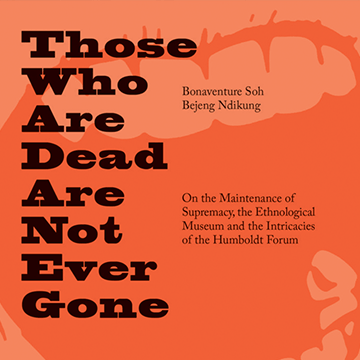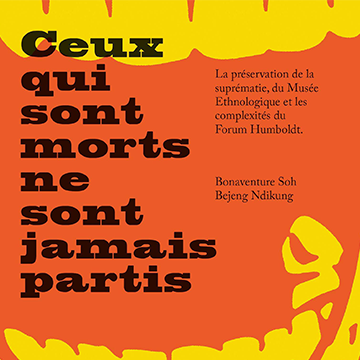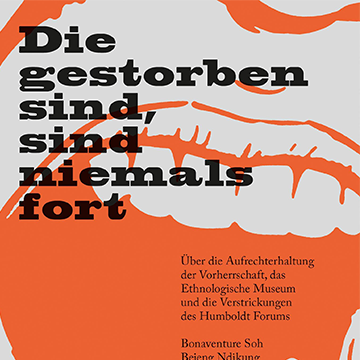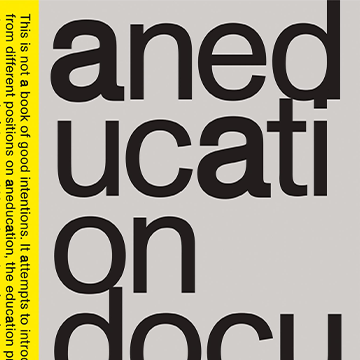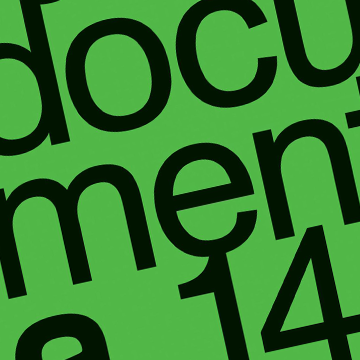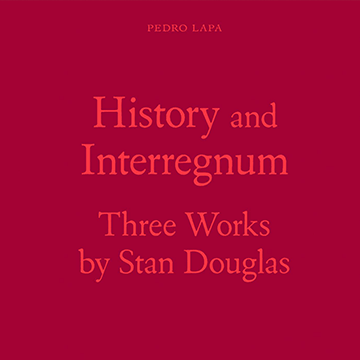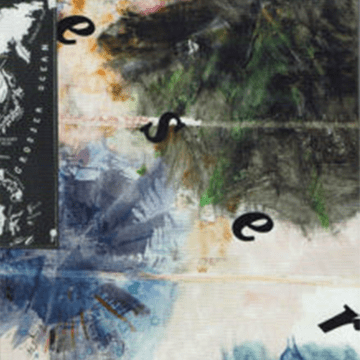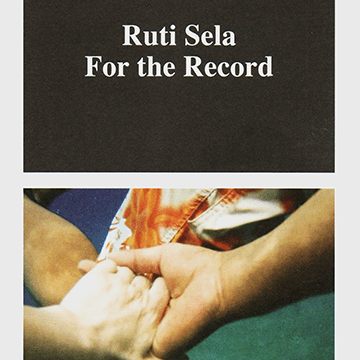The institution of the ethnological museum seems to be in the midst of a serious crisis of choking. The delicacies that most of these museums have acquired, which is to say co-opted, which is to say ingested, seem to have collectively missed the track to the oesophagus and got stuck in the respiratory tract. They have been stuck there for as long as the history of mass collections, acquisitions and looting, for as long as the ruthless and ongoing extraction of cultural property in the former colonies outside of Europe. A twelve-act essay on the maintenance of supremacy, the ethnological Museum and the intricacies of the Humboldt Forum.
Tag: power
Ceux qui sont morts ne sont jamais partis
L’institution du musée ethnologique semble traverser une véritable crise d’étouffement. Les mets délicats acquis, ou plutôt cooptées, pour ainsi dire ingérées par la majorité de ces musées, semblent avoir été dépistés de la route vers l’œsophage et s’être coincés dans les voies respiratoires. Toutes ces choses y sont coincées depuis l’acquisition, le pillage, de ces objets. En somme, depuis l’impitoyable déracinement des biens culturels qui perdure jusqu’à nos jours dans les anciennes colonies hors d’Europe. Un essai en 12 actes sur la préservation de la suprématie, le Musée Ethnologiques et les complexités du Forum Humboldt.
Die gestorben sind, sind niemals fort
Die Institution des Ethnologischen Museums scheint sich in einer ernsten Krise des Erstickens zu befinden. Die Delikatessen, welche die meisten solcher Museen meist unter zweifelhaften Bedingungen erwarben, mit anderen Worten genossen und verschluckt haben, scheinen kollektiv den Weg in den Oseophagus verpasst zu haben und blieben stattdessen im Atmungsapparat stecken. Sie hängen dort schon so lange fest, wie die Geschichte von Massensammlungen, Erwerbungen, Plünderungen; so lange wie der rücksichtslose und fortwährende Abbau von Kulturgut in den ehemaligen Kolonien außerhalb Europas bereits andauert.
Aneducation • documenta 14
Forty-eight entries are organized alphabetically as a lexicon, each written by various members of the aneducation team and documenta 14 Chorus, as well as curators, artists, and educators who contributed to the program. The publication’s many points of departure present just as many desires for other sites of learning. Cross references among the entries show the deep relationships that existed—and continue to deepen—between the methods, programs, and locations of aneducation.
Eine Erfahrung • documenta 14
Forty-eight entries are organized alphabetically as a lexicon, each written by various members of the aneducation team and documenta 14 Chorus, as well as curators, artists, and educators who contributed to the program. The publication’s many points of departure present just as many desires for other sites of learning. Cross references among the entries show the deep relationships that existed—and continue to deepen—between the methods, programs, and locations of aneducation.
History and Interregnum
History and Interregnum looks at the relationship between history and fiction through the practice of re-enactment, as seen in three works by Stan Douglas. The Secret Agent (2015), Disco Angola (2012) and Luanda-Kinshasa (2013) all draw upon the same historical period, which saw the emergence of different universalist and multicultural hopes for a transformed world. The recent history of Portugal, namely the Carnation Revolution of 1974 and decolonisation, and manifestations of culture such as jazz-rock, disco, funk and afrobeat, contribute to a political and multicultural emancipation dreamed of in those times, but ultimately eclipsed by new configurations of power. This book is a consideration of a politics of means, taking as its starting point the idea of a state of interregnum exemplified by these moments, exploring it in the light of artistic devices used by Stan Douglas.
Eser
Eser is a comprehensive publication on Judith Raum’s works, installations and lecture performance texts from 2011 to 2014. It is also a theoretical reader and material collection on the semi-colonial advance of German entrepreneurs and bankers into the Ottoman Empire before World War I in connection with the construction of the Anatolian Railway. In this frame, the logic of capitalism and geopolitical interests connected the engineers’ tasks with less obvious efforts: to get a hold of Anatolian agriculture, archaeology and the working conditions in the country. Judith Raum’s work suggests that gestures and rhetoric of power and domination are the consequences of an economic principle that did not end with the colonial era and in fact persist today. Her works and texts take her research on site and in archives as a starting point, they exhibit an autonomous aesthetic dimension, however, and as such suggest an alternative approach to ‘artistic research’.
For The Record
For over a decade Ruti Sela’s work has been focused on activating and documenting power relations as these are performed around the camera through sexuality, militarism, parenthood, and professional relations. Under the conditions of neoliberal optics of entertainment and surveillance, Sela’s films offer a groundbreaking visual ethics which is explored in this book by Yair Garbuz, Vít Havránek, Julia Moritz, Joshua Simon, Eduardo Thomas and Ana Teixeira Pinto.
